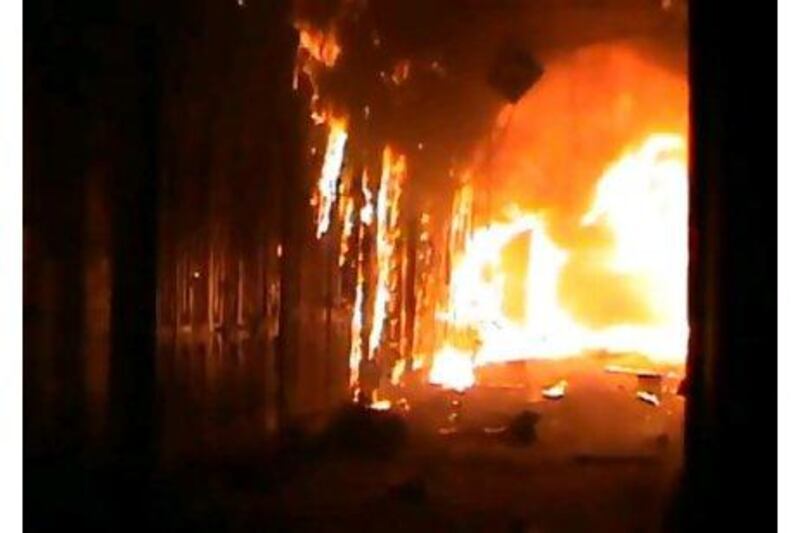DAMASCUS // The large number of deeply divided rebel groups is one of the main obstacles to a United Nations mission's efforts to broker an end to Syria's 18-month crisis, the Damascus representative of the new international envoy said yesterday.
Mokhtar Lamani, who represents the joint UN and Arab League envoy, Lakhdar Brahimi, in the Syrian capital, said that a solution to the country's crisis remains very difficult because of the "high level of mistrust between all parties".
Most opposition groups say they will accept nothing less than president Bashar Al Assad's departure from power, while the regime says its opponents are working as part of a foreign conspiracy.
With every diplomatic effort so far failing to halt the violence, Syria's civil war has descended into a deadly daily grind as the regime and the rebels trying to overthrow Mr Assad both try to gain the upper hand.
Some of the heaviest fighting yesterday took place in the northern city of Aleppo, where rebels recently launched a new offensive to capture the country's commercial capital.
A tourism official based in the city said more than 500 historic shops have been burnt since Saturday in the city's centuries-old covered market, adding that the giant doors of the nearby citadel were damaged.
An Aleppo-based activist, Mohammed Saeed, said 12 people were killed when troops shelled a mosque in the city early yesterday. A video posted online showed wounded worshippers being rushed away. Another video showed the Osman bin Madoun Mosque later in the day with its green carpets stained with blood.
Meanwhile army shelling and air raids killed dozens of civilians in flashpoint towns of Syria's conflict, while at least 18 soldiers died in a rebel attack in the centre of the country, a monitoring group said.
North-west of Aleppo, government warplanes bombed the town of Salqin, killing at least 21 people including five children, activists said.
Salqin is located some six kilometres from the border with Turkey in Idlib province, which has seen intense clashes between government troops and rebels in recent months.
In a video released by activists from Salqin a number of the air strike victims are seen piled in the back of a pickup truck, their bodies charred black with limbs torn off.
"My God, my son is dead," a man cries as he looks on at the bloody corpses, finally putting his hand over his eyes.
In another video, the bodies of three small children, probably the same ones, are shown lying on a bedsheet with their faces bloody and mutilated. "These children are from one family," a man tells the activist filming.
The government severely restricts access to the country, and the authenticity of the videos could not be independently verified.
The Syrian Observatory for Human Rights, which relies on its information from a network of activists and medics on the ground, said at least 102 people were killed in violence across Syria yesterday.
Mr Brahimi, a veteran Algerian diplomat who previously served as a UN envoy to Afghanistan and Iraq, waded into Syria's complicated diplomatic landscape last month when he replaced Kofi Annan, the former UN chief whose peace plan for Syria failed to end the violence there. Activists say the fighting has so far killed more than 30,000 people.
Mr Lamani said Mr Brahimi, who visited Damascus last month, will pay a second visit to Syria soon and will tour the country.
Asked whether he still sees hope of a political solution in Syria despite the bloodshed, Mr Lamani said: "I think maybe the time will be too long, but I hope so ... and this is what I am here for because I hope that in the end there would be some light."
The uprising against Mr Al Assad that erupted in March last year began with anti-government protests but has deteriorated into a civil war that has spread across the country. Since then, rebels have taken over patches of territory, mostly near the northern border with Turkey.
Mr Lamani noted that he had recently visited the central province of Homs and the southern province of Daraa, where he with met representatives of armed groups in the town of Rastan, a rebel stronghold in Homs that was among the first areas to take up arms against the Assad regime.
He did not provide any details of his meetings.





